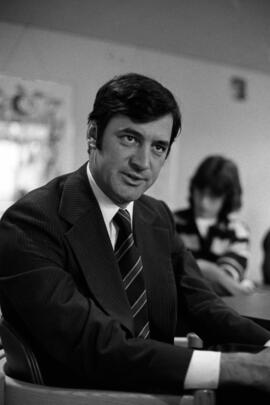These oral histories were predominantly done in the 1970s with half conducted in 1973. Some date from the 1980s and early 1990s. The majority of the interviews are with state legislators and the remaining are with mayors, city councilmen, campaign managers, party managers, widows of politicians, and US Congressmen. All of the participants were men except three (who were widows) and represented Central Minnesota communities ranging from Sandstone to Brainerd to those locations just north of the Twin Cities.
With some variance, all participants were asked similar questions including personal and family history in Minnesota, early political interests and activities, committee assignments, sponsored bills, the campaign and election process, the legislative process, and their future plans in politics. Unique questions were asked of individuals as the interview unfolded. Certain political issues that were significant in the early 1970s are common topics including new party designation requirements, lengths of terms, legislator salaries, and the impact of Nixon’s landslide victory in 1972 on local elections. The Watergate scandal is also discussed in several interviews.
Since the legislators’ service collectively goes back to 1935, the changes in the atmosphere, organization, and membership of the legislature are discussed in several oral histories. Many of the interviews reference other participants in this oral history collection. For many, the interview often took place at the beginning or middle of their political careers.
Brief biographical sketches and interview notes are given for all participants. Type of office, terms of service, and constituency represented are also listed. Transcripts of interviews are available unless otherwise noted below.
Some interviews were actually transcribed. The typewritten transcripts were keyed into a Word document but have not been checked against the audio. Past experiences has suggested that the transcripts may not be complete. In the meantime, the transcripts are available here as PDFs.
